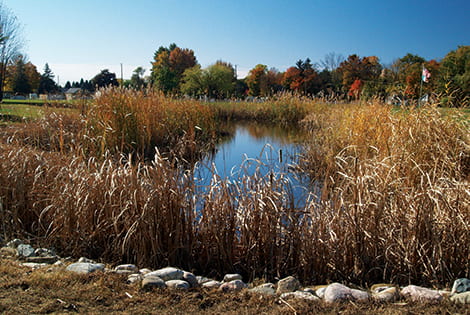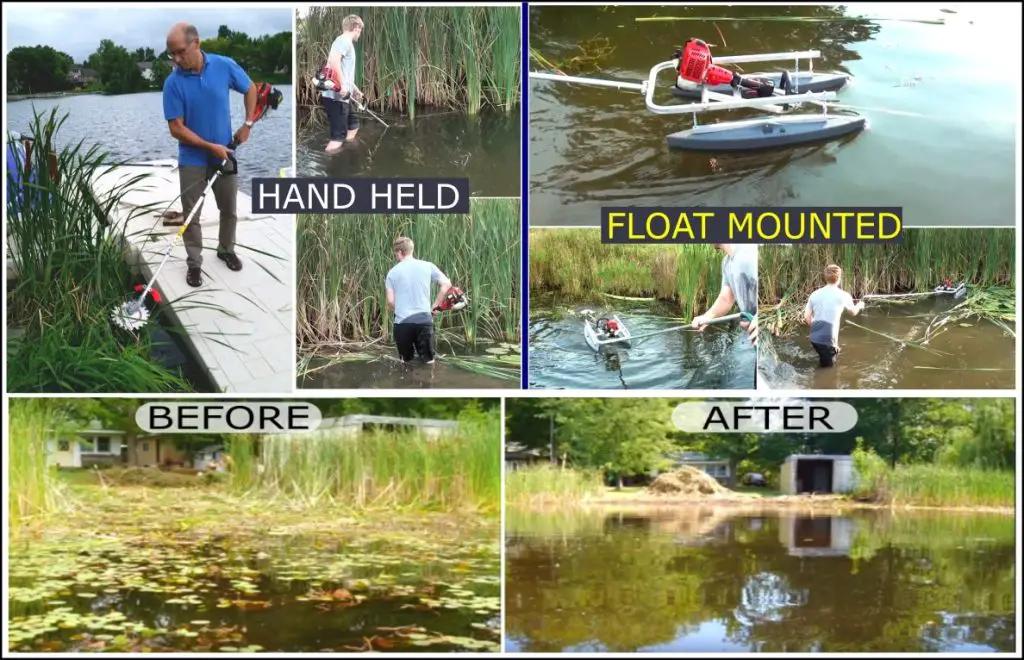In this article, we will discuss the process of removing cattails from your pond. Cattails are common aquatic plants that can quickly overtake a pond if left unchecked. By following these steps, you can effectively manage and remove cattails from your pond, ensuring a healthy ecosystem for your aquatic life.

Credit: www.thepondguy.com
Step 1: Identify the Problem Areas
Start by surveying your pond to identify the areas where cattails are growing excessively. Look for dense patches of cattails that may be blocking the water flow or crowding out other aquatic plants.
Step 2: Manual Removal
For small-scale cattail removal, you can manually pull out the plants by hand or use a shovel to dig out the roots. Be sure to remove the entire plant, including the roots, to prevent regrowth.
Step 3: Cutting and Trimming
If the cattails have spread extensively, consider using a sharp tool such as a weed trimmer or a scythe to cut down the plants. Cut the cattails close to the water’s surface to prevent them from regrowing quickly.
Step 4: Use a Rake
After cutting the cattails, use a rake to gather the cut plants from the water. This will help prevent the decaying plant matter from accumulating at the bottom of the pond and affecting water quality.

Credit: m.youtube.com
Step 5: Herbicides
If manual removal and cutting are not effective, you may consider using aquatic-approved herbicides to control cattail growth. Be sure to follow the manufacturer’s instructions carefully and use herbicides responsibly.
Step 6: Install a Barrier
To prevent cattails from spreading to unwanted areas of your pond, consider installing a physical barrier such as a pond liner or a geotextile fabric. This will help contain the cattails and limit their growth.
Step 7: Monitor and Maintain
Regularly monitor your pond for any signs of cattail regrowth. It’s essential to stay proactive in managing cattails to prevent them from becoming a nuisance in your pond ecosystem.
Conclusion
By following these steps and staying diligent in your pond maintenance efforts, you can effectively remove and control cattails in your pond. Remember that maintaining a healthy balance of aquatic plants is crucial for the overall well-being of your pond ecosystem.





